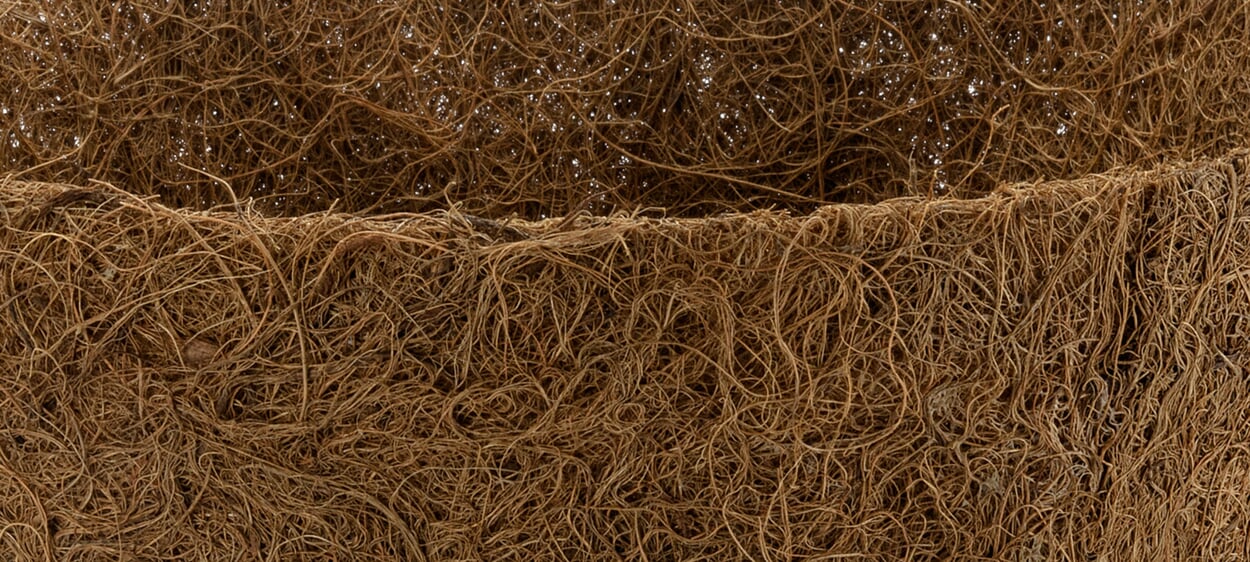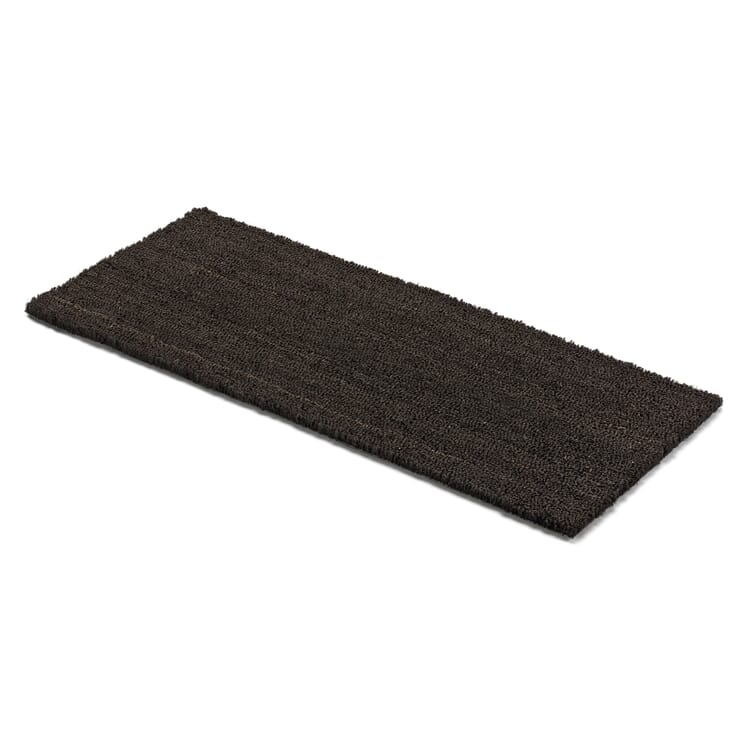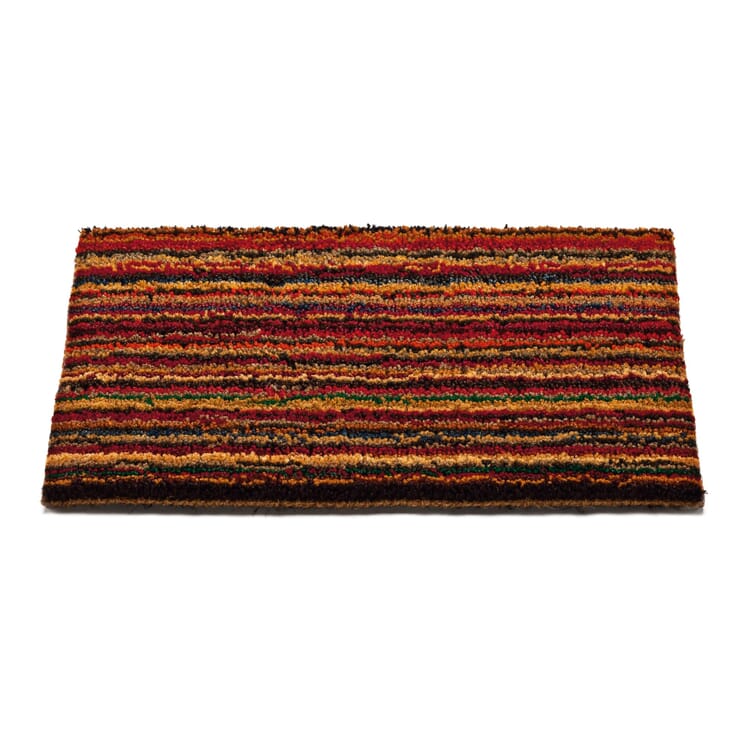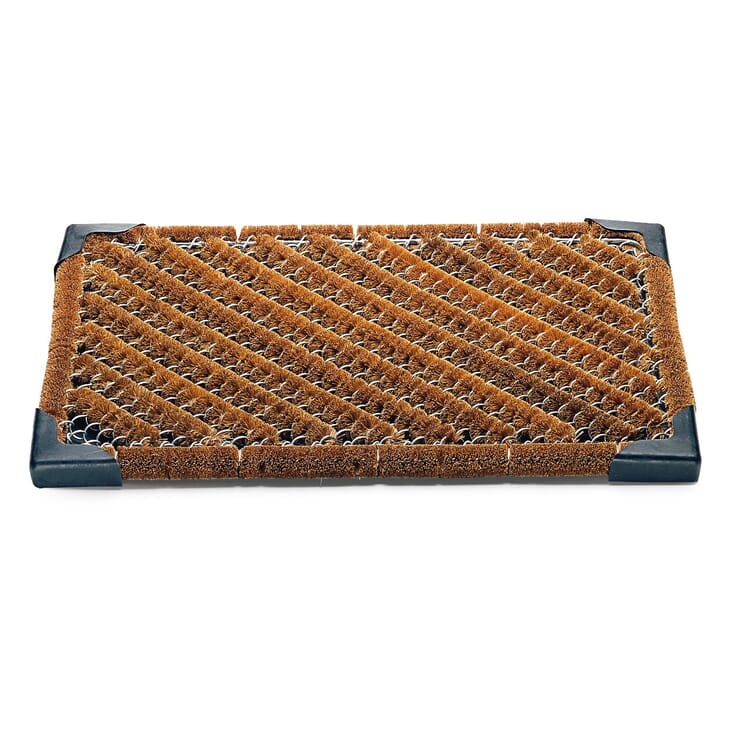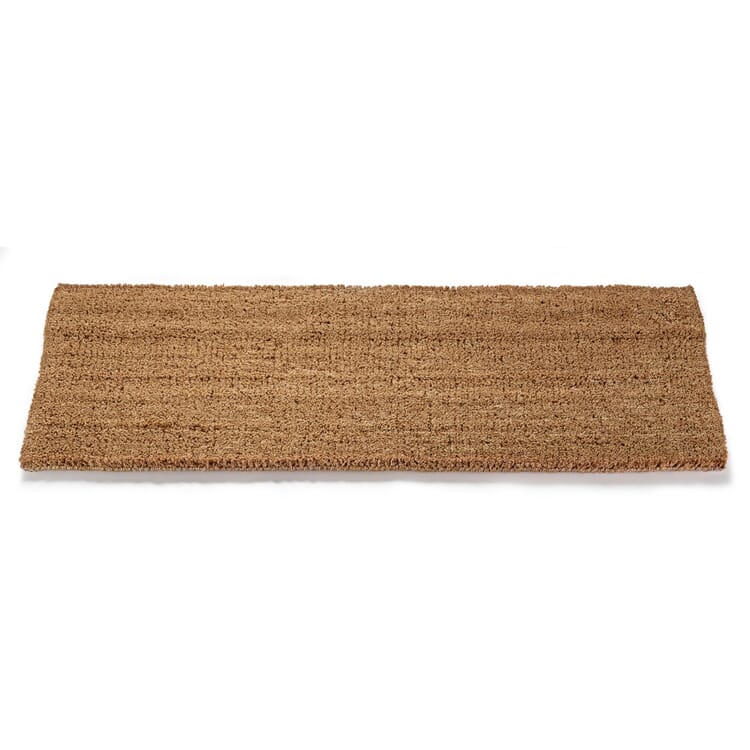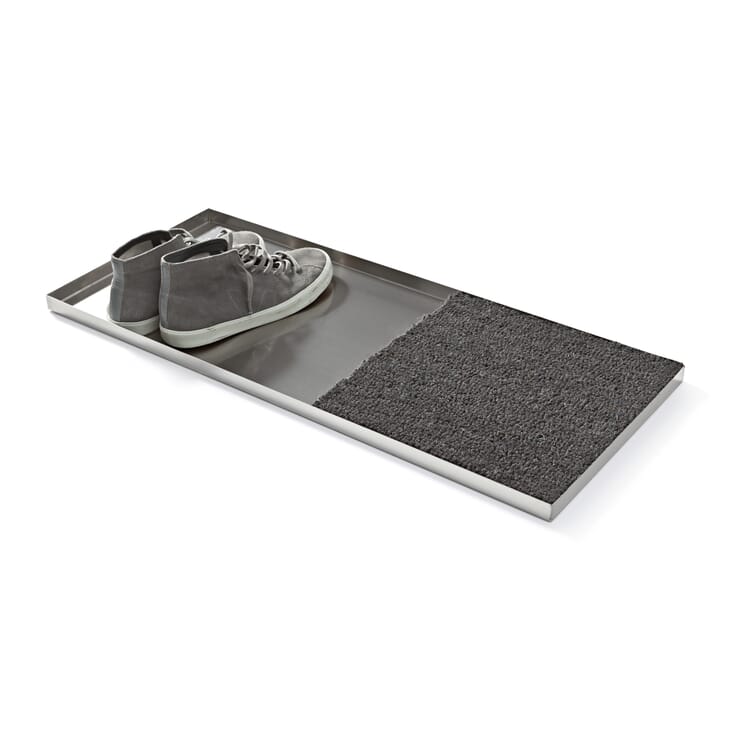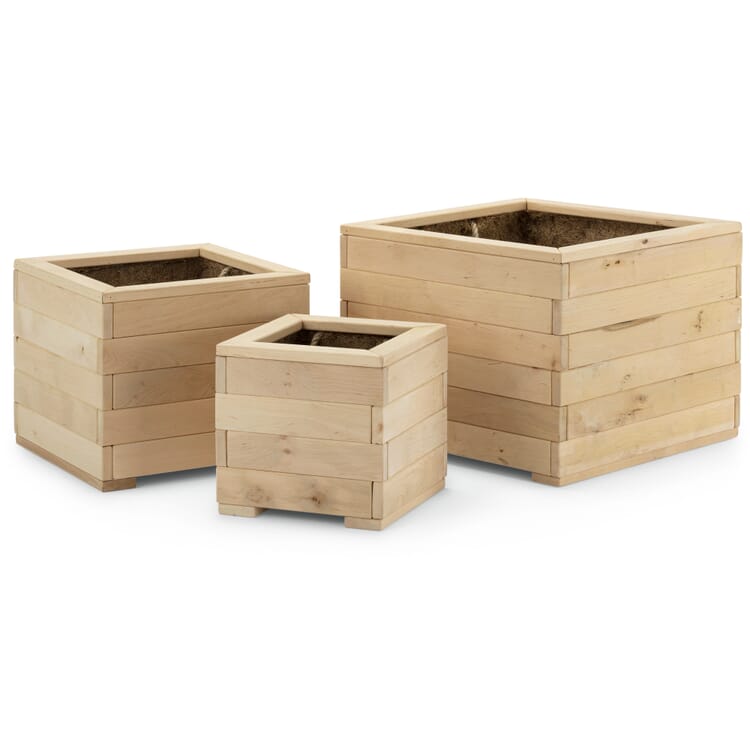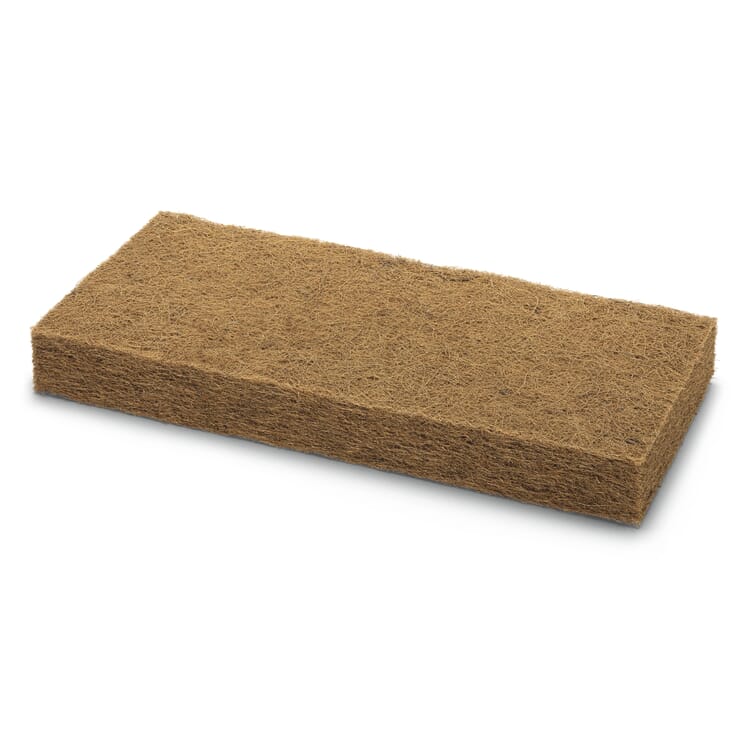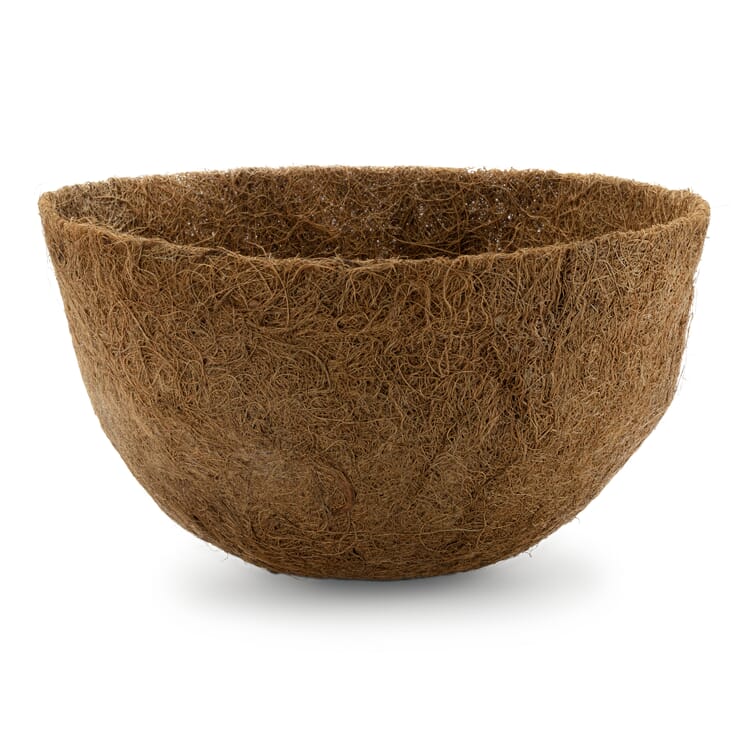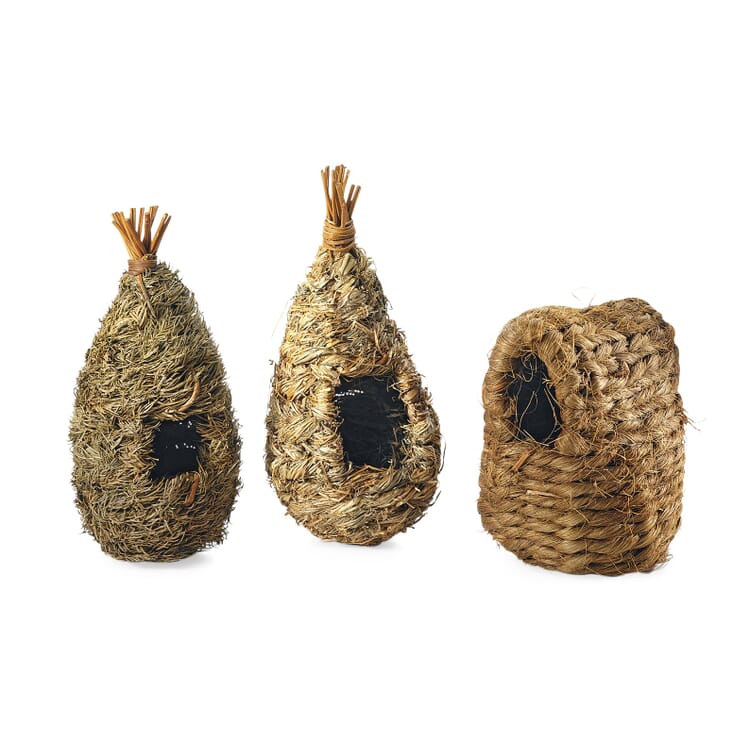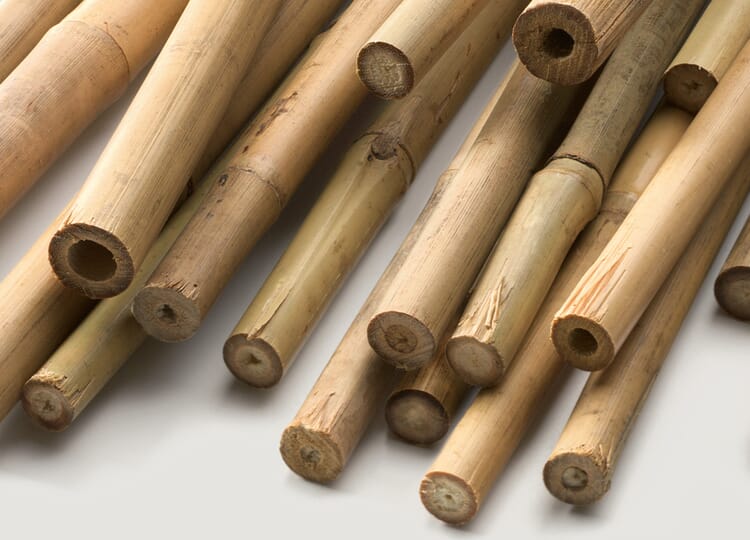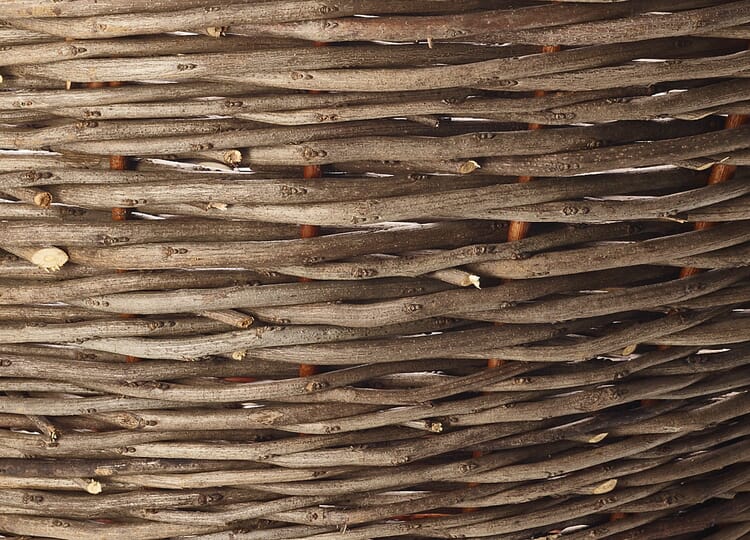Material
Coconut fiber. Extremely durable and robust
As a classic palm plant (Arecaceae family), the coconut palm is mainly native to the coastal regions of the tropical belt. Coconut palms do not form a crown, but rather bear their pinnate palm leaves at the tip of the slender, flexible and unbranched trunk as a so-called crested tree. Their drupes are called coconuts, although they are not nuts. The sea can carry them long distances to remote coasts and islands, where the coconuts can germinate even after many days in salt water. The coconut palm is cultivated in Sri Lanka, India, Indonesia, Thailand, Malaysia, Vietnam, Papua New Guinea, Africa, Mexico and Brazil.
The properties of coconut fiber
In many cultures, the coconut palm is referred to as the "tree of life" because the plant can be fully utilized from the root to the coconut to the palm leaves: for food and cosmetic products, as building material or firewood. The coconut fibers, also known as coir, can be used to make utilitarian items such as carpets, floor mats, shoe soles and brushes. The natural fibers are released from the outer shell (mesocarp) of the coconut by the process of water roasting and are stored in water for several months and then dried. Due to their valuable properties, products made from coconut fibers are insensitive, long-lasting and sought-after: - Since all decay-susceptible substances are decomposed during the roasting process, coconut fibers are extremely rot-resistant and durable. - Coconut fibers are elastic and strong at the same time, which means that the products made from them have good dimensional stability. - Since coconut fibers tolerate moisture, they are weather-resistant. Because coconut fibers are exposed to extreme loads in nature, they develop a correspondingly high resistance. Coconut carpets and runners can therefore be used well in heavily frequented areas such as hallways or hallways. - In addition, coconut fibers are low flammability, noise and heat insulating and breathable, which is why they are convincing as a raw material for interior finishing. - In addition, products made of coconut fibers, such as our runners and carpets harmonize the indoor climate thanks to their ability to regulate humidity. Coconut fibers are antistatic and thus attract less dust.
Do not clean coconut fiber products wet, as they will become brittle. Allow the dirt to dry before vacuuming, gently beating or brushing it out.
Selected products with coconut fiber
Recommended Topics
Due to its structure, bamboo cane is very light, yet at the same time extremely resistant to bending and tension, and therefore in some cases even superior to European construction timber. If bamboo lamellas are glued into panels, they can be processed like conventional wood materials and in just as many ways. Whether processed as a whole tube, in parts or as a bamboo panel, bamboo has a wide range of applications: from garden furniture to kitchen utensils, as personal care articles or handicraft tools.
View moreRobinia wood is one of the toughest and most valuable European timber. In its technical and physical properties, it is very similar to oak - in terms of gross density, compressive strength, tensile and flexural strength, it even surpasses the robust oak. And its high resistance to weathering virtually predestines it for use in garden furniture making and in the field of garden equipment.
View more
